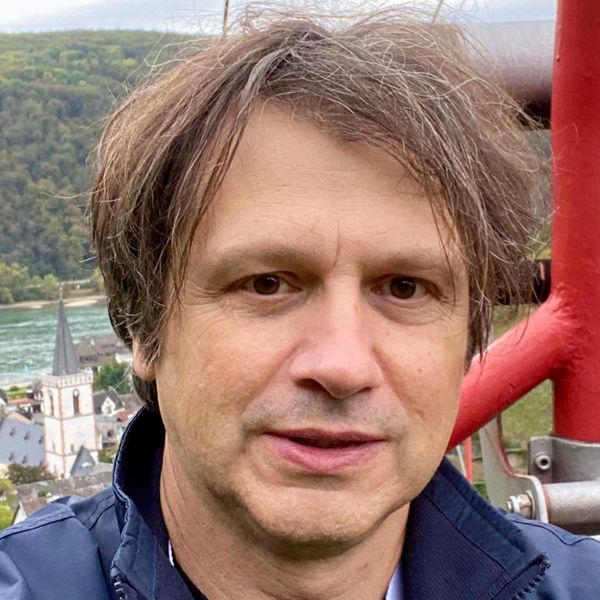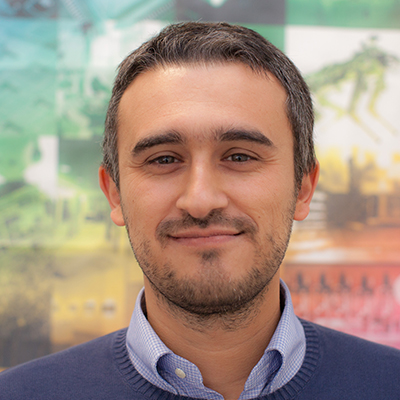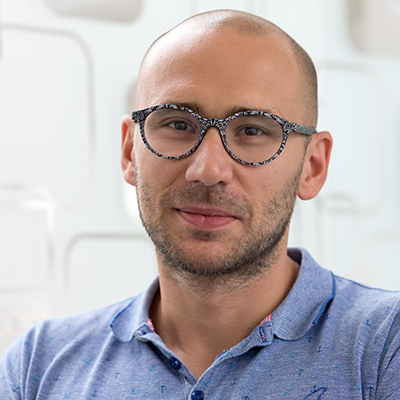
Prof. Liberato Manna
PI
He is a chemist with strong expertise in the field of the nanochemistry. Prof. Manna has more than 450 publications, 51,400 citations, and a H-index of 104 as of April 2023 (Web of science). His research interests include the advanced synthesis, structural characterization and assembly of inorganic nanostructures, and their applications in various fields. In 2011 he was ranked among the top 100 chemists worldwide (2000-2010 decade, Thomson Reuters) and has been a highly cited researcher in the past five years (Clarivate Analytics).
Prof. L. Manna skills/characteristics connected to the BRIDGE project:
a) Strong experience in nanochemistry.
b) Leading of a group of 25 members (Nanochemistry group: 8 PhD students, 10 Post-doctoral Fellows, 2 researchers, 3 visiting researchers, 1 administrative staff, plus the PI himself).
c) Teaching/supervising soft skills (part-time Professor at TU Delft from 2010-2021 and at UniGenova since 2014), Supervising over 50 PhD students, 40 Postdocs and 12 Master students in his career, to date.
d) Participation in dissemination activities (over 20), invited oral presentations (180), conference organization (ANNIC 2017, 2019, 2021, co-organizer of the symposium Euromat 2017, EMRS2015, EMRS2010, co-organizer of the Faraday Discussion Symposium 2016).
e) Soft skills in writing publications and proposals for grant applications.
f) Extensive experience in managing and supervising research projects financed by EU funding programmes, as well as excellence grants funded by the European Research Council (ERC).
g) Experience in writing and supervising research projects for postdoctoral researchers, ERC (ERC starting, consolidator, advanced and proof-of-concept grants), MSCA projects (one MSCA training network and one MSCA-RISE network), supervisor of 6 MSCA individual fellowships, member of a FET network, coordinator/partner of various European and national grants.
h) Received young researcher awards (“Lawrence Berkeley Lab (LBL) Technology Transfer” award in 2002, the “INFM young investigator” award in 2007, the “R&D 100” award in 2009 for “Nanocrystal Solar Cells”, the “Journal of Materials Chemistry Lectureship” award in 2011, the 2013 ACS “Early Career Award in Experimental Physical Chemistry”, the 2019 Sacconi Medal in Inorganic Chemistry.
i) 45 Patents.
j) Coordinator of a joint lab since 2021 with a large start-up company (Bedimensional) that focuses on energy storage and hydrogen generation technologies with nanomaterials.
k) Associated Editor of Nanoscale and Nanoscale Advances (RSC) in 2018-2021 and of Nano Letters (ACS) since 2022, handling several hundreds of manuscripts per year on various aspects of materials science and nanotechnology.
l) Currently in the advisory board of two companies: Quantum Solutions (UK) and Glass-to-Power (Italy).

Dr Teresa Pellegrino
Teresa Pellegrino since 2014 is tenured team leader of the group of Nanomaterials for Biomedical Applications at Italian Institute of Technology, Genoa (Italy). She received her MSc degree in Chemistry in 2000 and her PhD in Chemical Synthesis in 2005 from the University of Bari (Italy). During her PhD, she has started working in the field of nanoscience at the University of California, Berkeley, focusing on the study of interaction of quantum dots with tumor cells. Later she moved as Marie Curie fellow at the Center for Nanoscience in Munich (Germany), developing water-soluble and biocompatible coating for nanocrystals of different materials. In 2005 she was appointed as postdoctoral fellow at the National Nanotechnology Laboratory of CNR-INFM, Lecce, Italy. In 2010, she became permanent staff scientist researcher at the Nanoscience Institute of CNR, Lecce, Italy working on stimuli-responsive magnetic nanoparticles. The NanoBio group focuses on the development of inorganic nanostructures for drug delivery, magnetic hyperthermia, photo-thermal treatment, immunotherapy, and radiotherapy applications. She is coauthor of more than 135 scientific publications in peer reviewed journals. She has coordinated the FP7 collaborative project Magnifyco, she has received the ERC starting grant Icaro and she is the recipient of an ERC Consolidator project named Giulia that has just started in February 2023.

Dr Roman Krahne
Roman Krahne leads the Optoelectronics Research Line at the Italian Institute of Technology (IIT) in Genoa. He received his PhD in Applied Physics from the University of Hamburg (Germany). In 2001 he joined the Weizmann Institute of Science (Israel) as a postdoctoral fellow, receiving fellowships from the Feinberg graduate school and the Thyssen Foundation. Roman Krahne became researcher at the National Nanotechnology Laboratory of the National Research Council (CNR) in Italy in 2003, and 2009 he joined IIT as Senior Researcher. In 2013 he was appointed Guest Professor by the Institute of Semiconductors at the Chinese Academy of Sciences, where he gave extended lectures on Nanoscience and the communication of the obtained results and insights. His research interests are on optoelectronic properties of nanocrystal, comprising thin films and assemblies, devices, plasmonics and metamaterials, and the related optical and electrical spectroscopies. Roman Krahne is member of the Collegio di docenti of the Chemistry and Industrial Chemistry Department of the University of Genoa.

Dr Mirko Prato
Dr. Mirko Prato is the coordinator of the Materials Characterization Facility (MCF) of IIT. He is also in charge of the Photoelectron Spectroscopies laboratory focusing on surface chemical characterizations and valence band studies. He got his MSc in Physics in 2003 and his Ph.D. in Materials Science and Technology in 2007 from the Physics Department of the University of Genova, Italy. Since then, he has worked on material characterizations, exploiting his expertise in spectroscopic ellipsometry, atomic force microscopy, and X-ray photoelectron spectroscopy. Mirko Prato is the author of 320 articles in international peer-reviewed journals and 1 book chapter (h-index=73); he is also co-inventor of 4 patents.

Dr Lucas De Trizio
Dr. Luca De Trizio is a Technologist at IIT Genova. He graduated in Materials Science in 2008 at the University of Milano Bicocca and obtained his Ph.D. in Nanostructures and Nanotechnology from the same institution in 2013. During his Ph.D., in 2010-2011, he worked as fellow at the Italian Institute of Technology in Genova and, in 2012, at the Molecular Foundry at the Lawrence Berkeley National Lab. From 2013 to 2019, he worked as a postdoc researcher at the Nanochemistry Department in the Italian Institute of Technology in Genova. Since 2020 he has been one of the Deputy Directors for Student Mentorship at the Open University Affiliated Research Centre at IIT Genova. He has ~65 publications, ~5300 citations, h-index 31, and he is co-inventor of 5 patents. His research interests include the colloidal synthesis of transparent conductive oxides, plasmonic materials, luminescent semiconductors, electrocatalytic materials their characterization and the study of post-synthetic chemical transformations of nanocrystals.

Dr Francesco Di Stasio
Francesco Di Stasio is a Materials scientist with experience in the field of optoelecronics and photonics. Dr. Di Stasio graduated in Materials Science and Engineering at the University of Genoa in 2008 (Italy), then he obtained a PhD in Physics at University College London (UK) in 2012. He worked as a research Scientist at Cambridge Display Technology (Sumitomo Chemical group, UK) until he undertook postdoctoral research at the Istituto Italiano di Tecnologia (IIT, Italy). In 2015 he was awarded a Marie Skłodowska-Curie Individual Fellowship at the Institute of Photonic Sciences (ICFO, Spain). Since 2020, he is Principal Investigator of the Photonic Nanomaterials group at IIT after being awarded e European Research Council Starting grant. Currently, Dr. Di Stasio’s research focuses on the development of novel optoelectronic devices based on colloidal nanocrystals; in particular, electrically driven light-sources such as light-emitting diodes, single-photon emitters, and lasers.